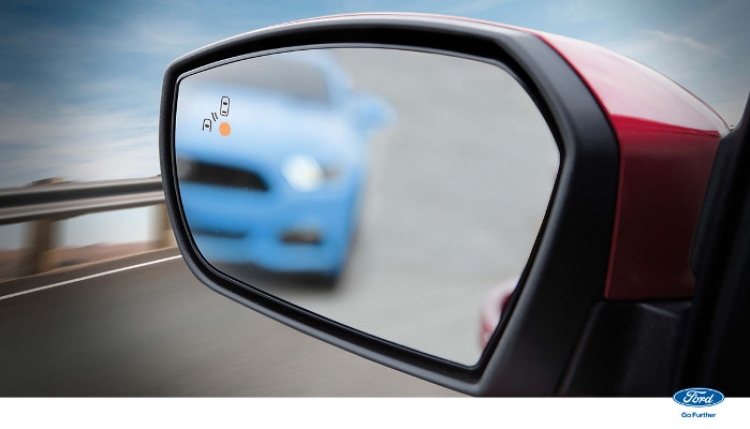Dubai - MENA Herald: More than a century after Henry Ford started the first moving assembly line, Ford Motor Company is bringing his pioneering invention into the smartphone age.
Ford has developed a wearable device, which connected to a smartphone app, enables production line workers to make faster and more accurate quality checks on new vehicles.
Previously, workers at Ford’s manufacturing facility in Valencia, Spain, used a paper-based system that involved walking back and forth more than one kilometer daily to access information on desktop PCs. Now, a new Android app means specification and quality checks can be made on the spot using a wrist-worn Portable Quality Assurance Device – believed to be an industry-first – and the moving assembly line can be stopped immediately as needed.
“We have varied options and features across our vehicle range and digital innovation in our plants helps to generate lean methods within the manufacturing process,” said Linda Cash, vice president, Manufacturing, Ford of Europe. “The ability to simply consult a smartphone screen to check any aspect of a vehicle’s quality and specification helps to guarantee highest levels of product quality, and improves work processes and manufacturing efficiency.”
The Bluetooth-enabled device recognizes the exact quality inspection requirements for each vehicle that passes along the assembly line. These are displayed on the touchscreen of the wrist-worn device, and team members are then able to instantly follow up and approve. The new system has helped to reduce human error by 7 percent while at the same time making each vehicle check seven seconds quicker. In Valencia alone, where the number of vehicles produced this year is expected to exceed 400,000 units, this represents a substantial time saving that allows additional quality inspections.
Ford builds six nameplates and even more body styles in Valencia that include hundreds of different vehicle specifications. These include the Mondeo sedan, the Mondeo Vignale, Kuga SUV, Transit Connect light commercial vehicle, Tourneo Connect people-mover, all-new S-MAX multi-activity vehicle, and Galaxy seven-seat people-mover. The company recently announced it is completing the final part of a €2.3 billion investment in manufacturing operations in Valencia, transforming the facility into one of the world’s most advanced, flexible and productive auto plants.
Ford production manager Ramón García proposed the wearable device connected to a smartphone app to the plant’s management team after observing his colleagues and family increasingly using smartphone and tablet apps on lunch breaks and at home. Ford, in partnership with local software company Visia Solutions S.L, developed the Android-powered app.
“Smart mobile technology increasingly helps my colleagues and my family organize our personal lives. It struck me that we could apply similar technology to the workplace – and improve the automotive production process,” García said. “This technology helps us to better handle the increased complexity of more vehicles and more vehicle specifications being produced on a single assembly line.
“The initial feedback from production line workers has been very positive and we are actively looking at other areas in the process where we could deploy digital innovation and further increase quality and efficiency,” García said.
Following a successful pilot project, Ford is now looking into rolling out the Portable Quality Assurance Devices to other plants.
As more consumers embrace wearable devices such as smart watches, glasses and fitness trackers, Ford this year opened the Automotive Wearables Experience lab at its Research and Innovation Center in Dearborn. Here, scientists and engineers are working to integrate wearable devices and vehicles to enable driver-assist technologies to be more aware of the driver behind the wheel – particularly when that driver is stressed or sleepy.
Valencia also is among Ford facilities in Europe that has introduced an advanced wi-fi network for the flexible installation to vehicles on production lines of the software required for voiceactivated connectivity system SYNC 2. This enables assembly workers to download vehicle-specific language and navigation packs as required for each vehicle.





